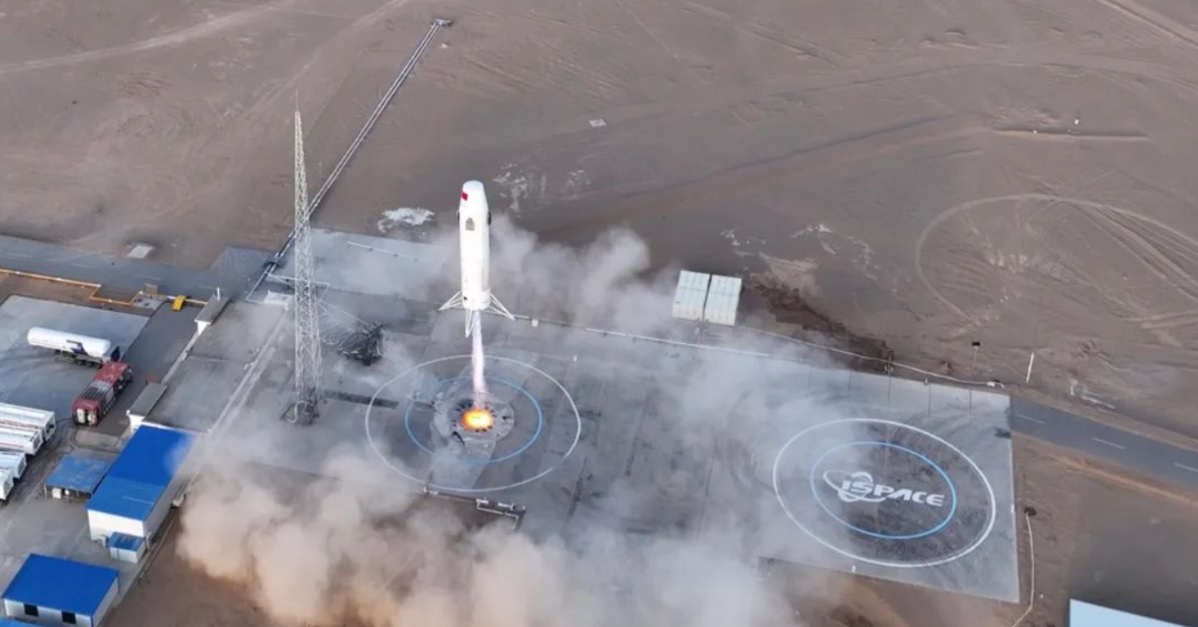China’s Landspace Conducts First VTVL Test for Reusable Stainless Steel Rocket

Space News ,China :- A Chinese space startup called Landspace achieved an important milestone by successfully testing a reusable rocket. The test involved a rocket called Zhuque-3 VTVL-1, which took off vertically and landed vertically at the Jiuquan spaceport. This event marked a significant step in the development of their stainless steel Zhuque-3 rocket, initially announced in November 2023. Landspace is targeting the first flight of Zhuque-3 in 2025, with the initial vertical takeoff and landing (VTVL) test originally planned for the previous month.
The test rocket, fueled by methane and liquid oxygen, reached an altitude of approximately 350 meters during its brief 60-second flight before safely landing in a predefined area. Landspace reported that the landing was precise, with an accuracy of about 2.4 meters and a landing speed of around 0.75 meters per second.
The Zhuque-3 rocket is a two-stage vehicle, measuring 4.5 meters in diameter and having a total length of 76.6 meters. It will weigh about 660 tons at liftoff and will be powered by nine Tianque-12B engines. The rocket's payload capacity to low Earth orbit (LEO) is expected to be 21,000 kilograms when used in an expendable mode. Depending on recovery scenarios, it can carry up to 18,300 kg or 12,500 kg when the first stage is recovered downrange or returns to the launch site.
This achievement reflects the growing competition in China's commercial launch sector to develop reusable launch vehicles. Landspace's test follows similar "hop" tests conducted by another Beijing-based startup, iSpace, emphasizing the race to create reusable rockets in the country.
The development of reusable rockets in China gained momentum after the government allowed private capital to invest in the space sector in 2014. Several other Chinese companies, such as Deep Blue Aerospace, Linkspace, Galactic Energy, and CAS Space, have also conducted various tests and are planning their own launches with reusable technologies.
Landspace has ambitious plans for the future, aiming to launch three Zhuque-2 rockets in 2024, with a goal to increase launch frequency to six times in 2025 and twelve times in 2026. Additionally, the company is working on a powerful engine, expected to be ready in 2028, which will drive a larger reusable launch vehicle challenging a planned reusable rocket by China Aerospace Science and Technology Corp. (CASC), the country’s state-owned main space contractor. The overall trend suggests a significant push towards reusable rocket technology within various Chinese space entities, both state-owned and commercial.
Landspace at 0800 UTC today conducted a successful 60-second, 350m hop at Jiuquan. Landing position accuracy is about 2.4m, the landing speed is ~0.75m/shttps://t.co/lOwQ2RvIoB https://t.co/hBDluzE4t9 pic.twitter.com/stSZHW72X2
— Andrew Jones (@AJ_FI) January 19, 2024


